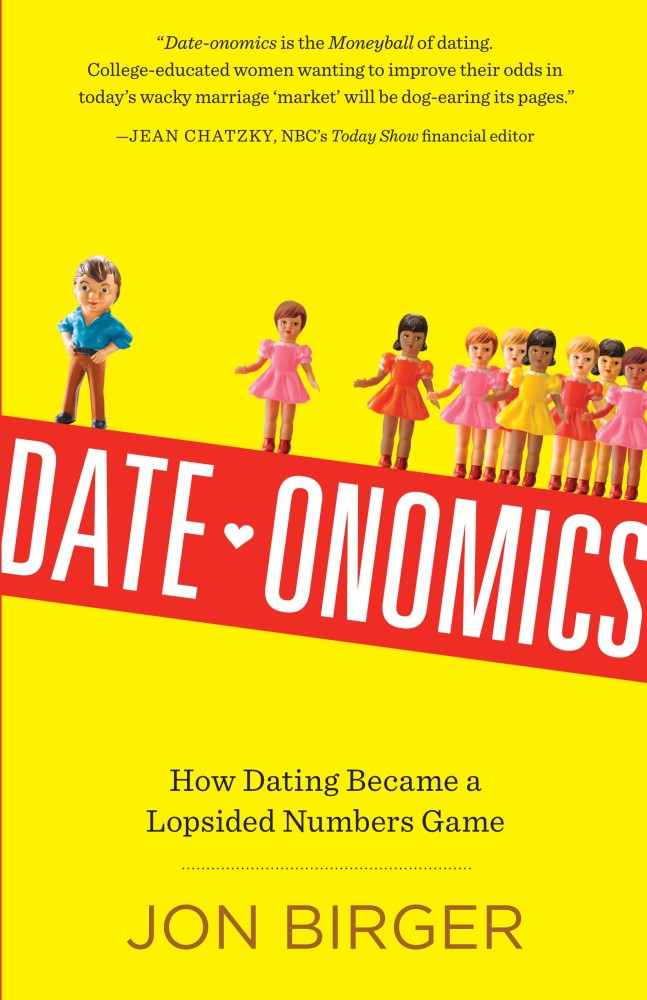By Cynthia M. Allen
Fort Worth Star-Telegram.
Here’s a question for your next cocktail party: Do women civilize men?
To your average feminist, that’s an arcane and sexist notion, maybe even a ploy to bridle women into unfulfilling monogamous relationships.
But it’s a question worth asking, especially when considering the findings of Jon Birger, a Fortune magazine writer, who dug into the data about gender imbalances on college campuses and emerged with some interesting findings about their impact on social and sexual behavior.
Birger has just published a book, “Date-onomics: How Dating Became a Lopsided Numbers Game,” in which he explains how oversupply of women can and often does lead to their devaluation by males.
And there is nowhere better to study the impact of the female surplus on society than on college campuses, where women increasingly dominate the population.
A few decades ago, women fought for equal representation at institutions of higher learning. Today, women are more likely to hold a college degree than their male counterparts.
In 1994, male and female high school graduates enrolled in college at roughly the same rate.
In 2013, the gender ratio among college graduates was 57:43, meaning that for every four women who received a diploma, only three men joined them. That ratio is expected to increase to 3:2 within a decade.
This disparity has a plethora of socioeconomic implications that warrant further exploration, but for our purposes we’ll focus on one element of the research.
Birger posits that this gender imbalance contributes significantly to the hook-up culture that permeates campus life, which makes complete sense.
Comfortable in the minority, many young men find themselves with seemingly limitless dating opportunities. And as the “in-demand” gender, men can be not only choosy, but brutally promiscuous when it comes to encounters with coeds.
An interview with a male student at Sarah Lawrence University, where women outnumber men 4:1, perfectly captured this phenomenon. The student copped to sleeping with more than 20 of his female peers.
“Sometimes it feels like you can have anyone you want,” he said.
There’s a toll on women, too. Aside from the damage to self-esteem that the lack of consistent male attention can cause, women are more likely to feel pressure to engage in sexual behavior that they may come to regret.
Skeptics might argue that campus hook-up culture is a universal feature of modern college life, that men and women are acting as they would in any similar environment.
Not so, says Birger, who also looked at schools with more balanced gender ratios and those with disproportionately higher numbers of men.
At those universities, he found a propensity for traditional dating and monogamy, especially after freshman year.
What’s even more interesting, and somewhat troubling, about Birger’s research is what appears to be a correlation between gender imbalance on campus and sexual violence.
The narrative that universities foster a culture of rape has exploded. And while there are numerous good reasons and plenty of credible research to counter the questionable underlying data, there isn’t an abundance of data or analysis on the potential causes of this alleged phenomenon.
Birger’s research offers one.
When women are in abundant supply, there is reason to believe they are more likely to become victims of sexual assault.
buy vigora online www.ecladent.co.uk/wp-content/themes/twentyseventeen/inc/en/vigora.html no prescription
The notion defies logic. Statistically, men, not women, are more likely to commit assault, and with fewer of them present, sexual violence should theoretically decrease. Similarly, women tend to find safety in numbers.
But a bounty of research shows that sexual assaults are more prevalent in communities where females outnumber the males.
Birger points to research by a Columbia University scholar who found that in China, where the opposite is true, men outnumber women by 20 percent, crime rates have risen with the tide of the male population, but rapes have declined dramatically. The idea being that when women are scarce they are better treated and men are more protective of them.
Another comprehensive look at the data by the Anthropology Department at the University of California at Davis also found an oversupply of males is associated with lower rates of rape, although some research suggests an uptick in intimate partner violence.
It may not be true that women civilize men, but the available supply of women certainly affects male behavior toward them, for better and for worse.
The evidence suggests that women can help themselves by becoming less available to their counterparts.
___
ABOUT THE WRITER
Cynthia M. Allen is a columnist for the Fort Worth Star-Telegram














































































































































































































































































































































































